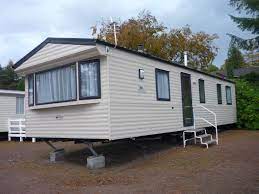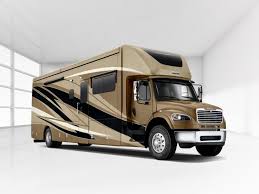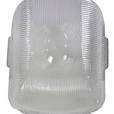The Convenience and Comfort of Mobile Homes
Mobile homes, also known as manufactured homes, offer a unique housing option that combines affordability, flexibility, and comfort. These homes are built off-site in a factory setting and then transported to their final location, making them a popular choice for many individuals and families seeking a place to call home.
Affordability
One of the primary advantages of mobile homes is their affordability. Compared to traditional stick-built homes, mobile homes are typically more cost-effective, making homeownership more accessible to a wider range of people. This affordability extends not only to the initial purchase price but also to ongoing maintenance and utility costs.
Flexibility
Mobile homes offer a high degree of flexibility in terms of location. Since they can be easily transported from one place to another, homeowners have the freedom to move their residence without the need for selling or buying a new property. This flexibility is particularly appealing for individuals who enjoy traveling or those who may need to relocate frequently due to work or personal reasons.
Comfort
Despite their mobility, modern mobile homes are designed with comfort in mind. These homes come in various sizes and layouts to accommodate different preferences and lifestyles. Many mobile homes feature amenities such as spacious living areas, fully equipped kitchens, multiple bedrooms, and bathrooms, as well as energy-efficient heating and cooling systems.
Sustainability
Mobile homes are also recognized for their sustainability benefits. Manufacturers often use eco-friendly materials and construction practices to reduce waste and minimize environmental impact. Additionally, many mobile homes are equipped with energy-efficient appliances and systems that help lower utility costs while reducing carbon emissions.
Conclusion
In conclusion, mobile homes offer a compelling housing solution that blends affordability, flexibility, comfort, and sustainability. Whether you’re looking for a permanent residence or a temporary living arrangement, mobile homes provide an attractive alternative that meets the needs of modern homeowners. With their practicality and versatility, mobile homes continue to be a popular choice for those seeking both convenience and comfort in their living space.
8 Advantages of Mobile Homes: Affordable, Flexible, and Sustainable Living Solutions
- Affordable housing option
- Flexibility to relocate easily
- Customizable layouts and designs
- Energy-efficient features
- Sustainable construction practices
- Community living in mobile home parks
- Lower maintenance costs compared to traditional homes
- Quick construction and installation process
Six Key Downsides of Mobile Home Ownership: Appreciation, Placement, Quality, Financing, Weather Vulnerability, and Customization Limits
- Limited appreciation in value compared to traditional homes
- Potential restrictions on where mobile homes can be placed
- Perception of lower quality construction by some individuals
- Difficulty in obtaining financing for mobile home purchases
- Vulnerability to damage from extreme weather conditions
- Limited customization options compared to traditional homes
Affordable housing option
Mobile homes serve as an affordable housing option, offering a cost-effective solution for individuals and families looking to own a home without breaking the bank. Compared to traditional stick-built homes, mobile homes are typically more budget-friendly, making homeownership accessible to a wider range of people. This affordability extends beyond the initial purchase price to include lower maintenance and utility costs, providing a practical and economical housing choice for those seeking financial stability and security.
Flexibility to relocate easily
One significant advantage of mobile homes is their flexibility to relocate easily. Unlike traditional homes that are fixed to a specific location, mobile homes can be transported from one place to another with relative ease. This mobility provides homeowners with the freedom to move their residence without the complexities of selling or buying a new property. Whether it’s for work opportunities, lifestyle changes, or simply a desire for a change of scenery, the ability to relocate a mobile home offers unparalleled convenience and adaptability for individuals and families on the move.
Customizable layouts and designs
Mobile homes offer the advantage of customizable layouts and designs, allowing homeowners to tailor their living space to suit their preferences and lifestyle. Whether you prefer an open-concept layout for a spacious feel or a more compartmentalized design for privacy and functionality, mobile homes provide flexibility in creating a home that meets your specific needs. From choosing the number of bedrooms and bathrooms to selecting finishes and features, the ability to customize the layout and design of a mobile home ensures that you can create a personalized living environment that reflects your unique style and taste.
Energy-efficient features
Mobile homes are increasingly valued for their energy-efficient features, which contribute to cost savings and environmental sustainability. These homes are equipped with modern appliances, heating, and cooling systems designed to minimize energy consumption. By incorporating energy-efficient technologies, mobile homes help homeowners reduce their utility bills while also lowering their carbon footprint. This focus on sustainability not only benefits the environment but also enhances the overall comfort and affordability of living in a mobile home.
Sustainable construction practices
Mobile homes stand out for their commitment to sustainable construction practices. Manufacturers prioritize eco-friendly materials and building methods to reduce waste and minimize environmental impact. By incorporating energy-efficient appliances and systems, mobile homes not only lower utility costs for homeowners but also contribute to a greener future by reducing carbon emissions. This focus on sustainability ensures that mobile homes are not just comfortable and convenient living spaces but also environmentally responsible choices for those seeking a more eco-conscious lifestyle.
Community living in mobile home parks
Community living in mobile home parks offers a unique and tight-knit social environment that fosters connections and a sense of belonging among residents. Living in a mobile home park provides opportunities for shared experiences, communal activities, and mutual support among neighbors. This close community setting often leads to lasting friendships, increased safety through neighborhood watch programs, and a strong sense of camaraderie that enhances the overall quality of life for those who call the mobile home park their home.
Lower maintenance costs compared to traditional homes
Mobile homes offer a significant advantage in terms of lower maintenance costs when compared to traditional homes. Due to their construction and materials, mobile homes typically require less upkeep and repair work, resulting in savings for homeowners in the long run. This cost-effectiveness makes mobile homes an attractive option for those looking to minimize ongoing maintenance expenses while still enjoying a comfortable and functional living space.
Quick construction and installation process
One significant advantage of mobile homes is their quick construction and installation process. Unlike traditional stick-built homes that can take months or even years to complete, mobile homes are built off-site in a factory setting, allowing for efficient and streamlined production. Once the home is ready, it can be transported to its final location and installed in a fraction of the time it would take to construct a conventional house. This rapid construction and installation process not only save time but also reduce labor costs, making mobile homes an appealing option for those looking for a speedy and hassle-free housing solution.
Limited appreciation in value compared to traditional homes
One significant drawback of mobile homes is their limited appreciation in value when compared to traditional homes. Unlike stick-built houses that often increase in value over time, mobile homes tend to depreciate, making them a less lucrative investment option. Factors such as age, location, and overall condition can further impact the resale value of mobile homes. This limitation in appreciation potential may deter some buyers who view homeownership as a long-term financial investment.
Potential restrictions on where mobile homes can be placed
One notable con of mobile homes is the potential restrictions on where they can be placed. Zoning regulations and land use laws may limit the locations where mobile homes can be set up, which can pose challenges for individuals looking to place their homes in certain areas. These restrictions can vary by region and community, leading to limitations on the mobility and flexibility that are typically associated with mobile homes. As a result, homeowners may encounter difficulties finding suitable placement for their mobile homes, affecting their ability to fully enjoy the benefits of this housing option.
Perception of lower quality construction by some individuals
Some individuals perceive mobile homes to have lower quality construction compared to traditional stick-built homes. This perception stems from misconceptions about the materials used and the construction process of mobile homes. While modern mobile homes are built to stringent safety and quality standards, the prejudice against them persists among some people. However, advancements in manufacturing technology and building practices have significantly improved the durability, energy efficiency, and overall quality of mobile homes, challenging these outdated perceptions.
Difficulty in obtaining financing for mobile home purchases
One significant challenge associated with mobile homes is the difficulty in obtaining financing for their purchase. Traditional mortgage lenders often have stricter requirements and higher interest rates for mobile homes compared to conventional houses. This can pose a barrier for individuals looking to buy a mobile home, as limited financing options may limit their ability to secure affordable loans. Additionally, the depreciating value of mobile homes over time can further complicate the financing process, making it harder for buyers to find favorable terms for their purchase.
Vulnerability to damage from extreme weather conditions
Mobile homes are susceptible to damage from extreme weather conditions, posing a significant con for homeowners. Their lightweight construction and often less sturdy materials make them more vulnerable to the impact of severe storms, high winds, and other natural disasters. In regions prone to hurricanes, tornadoes, or heavy snowfall, mobile homes may be at a higher risk of structural damage compared to traditional site-built houses. This vulnerability underscores the importance of taking precautionary measures and investing in reinforcement techniques to mitigate the potential risks associated with extreme weather events when living in a mobile home.
Limited customization options compared to traditional homes
One significant drawback of mobile homes is their limited customization options when compared to traditional homes. Due to the prefabricated nature of mobile homes, homeowners often have fewer choices when it comes to modifying the layout, design, and features of their living space. Customization options such as room additions, structural changes, and personalized finishes are more challenging to implement in mobile homes, which can restrict individual preferences and creativity in home design. This limitation may deter some individuals who value unique and tailored living spaces from choosing mobile homes as their primary residence.




